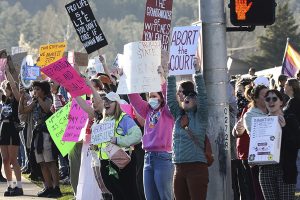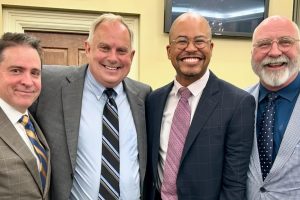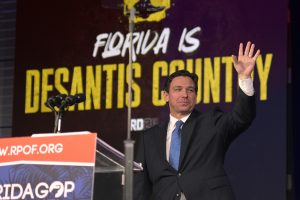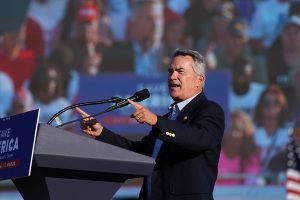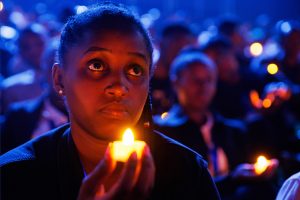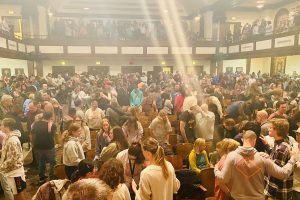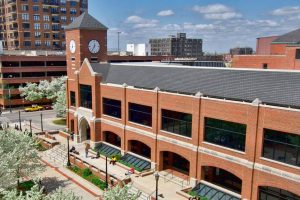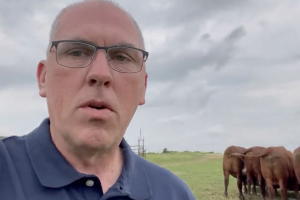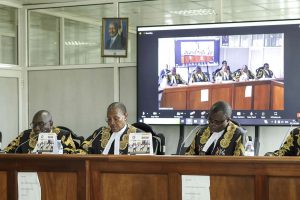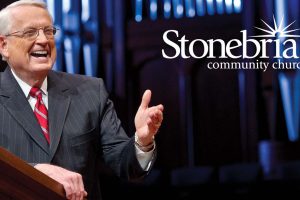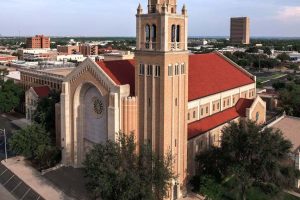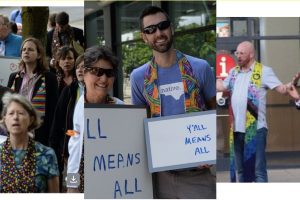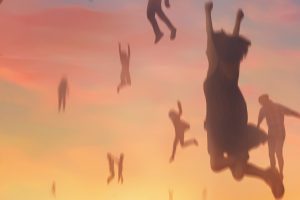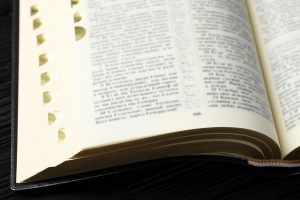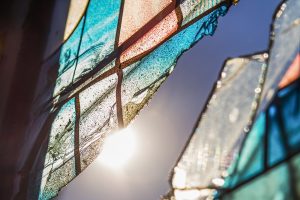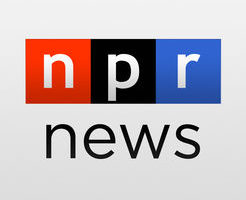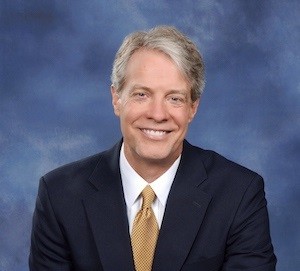 Most Americans are “living apart” at the moment. We are separated, even as we experience a leveling and an equal susceptibility. A microscopic organism has brought the world to its collective knees. Yet perhaps from the fear and uncertainty this global pandemic has wrought, we will find a cure for more than the COVID-19 virus.
Most Americans are “living apart” at the moment. We are separated, even as we experience a leveling and an equal susceptibility. A microscopic organism has brought the world to its collective knees. Yet perhaps from the fear and uncertainty this global pandemic has wrought, we will find a cure for more than the COVID-19 virus.
Politics in America
Livy, the great poet of Rome said, “We have reached the point where we cannot bear either our vices or their cure.” As was true for the Romans, so it is for us.
Americans were separated long before the shelter-in-place and social distancing required by the novel coronavirus. For more than a decade the political and social fabric of this nation has been frayed and torn. We have been here before – through slavery and Civil War, segregation and Civil Rights, Korea and communism, Vietnam and militarism, Watergate and pessimism. We could go on. And now the list of our national crises also includes measles, diphtheria, polio and AIDS, plus a host of other health crises our nation and world have coped with in the last century.
“Perhaps change is at hand – in the form of a tiny little virus that offers us no other alternatives but to work together.”
We Americans are famous for finding creative solutions to seemingly intractable problems. And yet Livy’s words square well with our current dilemma. Our politics, our very democracy, was already at a crossroad. The current health emergency notwithstanding, our two primary political parties have wandered in the wilderness of lost identities and ill-defined parameters. And like many of our politicians, we are a nation starkly divided, increasingly lonely, politically despondent and progressively cynical.
Yet, consonant with Livy’s commentary, we cannot bear the vice, nor can we abide the cure. We have been paralyzed by fear, anger and a growing assurance of the absolute stupidity of those we oppose. Our disagreements have appeared as intractable as they are intolerable.
Religion in America
Alexis de Tocqueville, the astute French social philosopher, toured early America during the 1830s and catalogued prescient and insightful conclusions. In his critical work, Democracy in America, he famously saw in the American experiment a “religious point of departure” so embedded in our collective psyche that it motivated then even as it does now.
Quoting from John Winthrop (1588-1649), the first governor of the Massachusetts Bay Colony, de Tocqueville detected a bedrock beginning as well as an echoing essence:
“We must delight in each other, make other’s conditions our own, rejoice together, mourn together, labor and suffer together, always having before our eyes our commission and community in the work, our community as members of the same body.”
In Winthrop, de Tocqueville saw “the whole destiny of America contained in the first Puritan who landed on those shores.” But he also sensed a looming cloud within the broad horizons of America’s future. Winthrop envisioned a society based on and planned for the common good. He espoused a “moral freedom,” a true freedom birthed from a covenant between God and humanity, and a liberty “to that only which is good, just and honest.”
“This liberty,” Winthrop said, “you are to stand for with the hazard of your lives.”
By the 1830s, de Tocqueville detected the growing seduction of unchecked individualism. Nearly 200 years later, this has only gotten worse. Sometimes referred to as “natural liberty,” it has morphed into a “hyper-individualism.” We have lately been seduced into believing that my desires need to be met, that my happiness is what matters, and that my ability to get what I want when I want it flies as the standard for political, moral and even spiritual decisions. The seductive culture of my, me, mine has sadly corrupted Winthrop’s communal, compassionate vision. We are at an existential cultural crossroad.
A new vision for the common good. At two events in the last 18 months I have had the grand privilege of interviewing my friend, Barbara Brown Taylor. On both occasions, we discussed her latest book, Holy Envy. On stage, she reemphasized what she has written about with such passion and wit. Her course on world religions included class field trips from Piedmont College in the foothills of the north Georgia mountains to synagogues and mosques, to Greek Orthodox, Catholic and Protestant churches, and to Buddhist and Hindu temples.
Her students trended toward fairly traditional, generally conservative and mostly Christian. In many cases, they displayed a reticence to learn too much from faith traditions outside their own. With poignancy, humor and great respect, Taylor recounted multiple stories of glad enlightenment. Students discovered new worlds of compassion, heard broad words of wisdom, gained new insights and experienced countless meaningful moments within traditions well outside their comfort zones.
Exposure to difference, encounters with “the other” and meaningful interactions beyond their previous experience changed lives. The majority of these students became more compassionate. They saw with different eyes and felt with hearts more open.
Respect is a vital beginning for us all. But there is more.
Our common vulnerability. This is the consistent theme in virtually every faith group, including the earlier warning in our Jewish and Christian traditions. The man and woman discover in the garden (Genesis 3), not so much that they are naked, but that they are vulnerable and exposed to the world around them. The knowledge they stumbled upon was less about what they couldn’t have and more about what they couldn’t control. They stand prominently as the early representatives of our common humanity.
We are equally fragile. Brené Brown frequently reminds us in her speaking and writing, including her most recent work, Dare to Lead, that our common vulnerability unites us in a coalescing need to confess our inadequacy, our woundedness and our fear of failure. The potential unity this understanding engenders is profound.
Our common humanity. David Brooks, in his most recent book, The Second Mountain, concedes these fragile moments are ubiquitous for us all. They unite us in a common heritage which should reconnect us firmly to Winthrop’s call for the common good. These fragile moments, Brooks says, also constitute the valley following the first mountain, that steep incline most of us endure for the success we hope for and the dominance our culture insists we deserve.
But we tumble, stumble and bumble in our vulnerability and stark experience of unbridled hyper-individualism. We fall, inevitably, into the valley of loneliness, shadows and failure. Only there, in our confessional acknowledgment of common fragility, does the call of the second mountain begin. Brooks describes it as a “sweet compulsion,” a growing and deeply moral commitment to others, to the world around us and to a new vision of a common vulnerability that is uniquely life-giving and imminently hopeful.
Perhaps change is at hand – in the form of a tiny little virus that offers us no other alternatives but to work together, to face our shared vulnerabilities and to no longer ignore our truest human condition and our common human family.
COVID-19 is clearly no respecter of race, status, nationality or cultural leanings. It also might just unite us in ways that would surprise Livy and his Roman contemporaries. If we do well and learn carefully, perhaps this novel coronavirus will gather in each of us a calm assurance, having become so weary of our vices, we finally embrace our cure – by embracing one another.
Let us hope so; and let us begin. Today.
Read more BNG news and opinion on this topic:
#intimeslikethese














